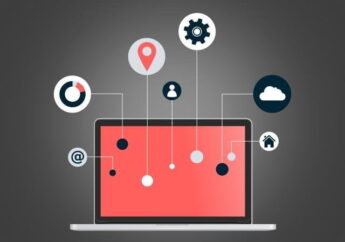Corporate Chronicles: Innovations Shaping The Future
by Ankita Tripathy Business Development Published on: 22 February 2024 Last Updated on: 17 October 2024

The workplace, much like every other corner of our lives, is in a constant state of change. Technology keeps shaking things up, from how we communicate to how we get work done. Businesses that stay on top of these shifts – or better yet, anticipate them – are the ones that will make their mark on the future.
So, what workplace innovations are making waves right now? And how will they transform the business landscape? Let’s take a closer look.
Remote And Hybrid Work: Here To Stay

The COVID-19 pandemic forced the world into a grand work-from-home experiment. While many offices have reopened, the genie is out of the bottle: remote and hybrid arrangements are a permanent fixture of the corporate world. Why? Employees favor the flexibility and work-life balance these models offer. At the same time, businesses like them because they allow for a broader talent pool and potentially decrease real estate costs. This shift will impact everything from how we use office space to how we build corporate culture.
Artificial Intelligence: Friend, Not Foe
Sure, some jobs may be at risk with the rise of AI. But for the most part, artificial intelligence is here to transform work, not replace it. In customer service, it powers chatbots, providing instant support 24/7. AI can analyze vast amounts of data to pinpoint patterns and inform decision-making. And in repetitive, time-consuming tasks, it can automate processes, freeing human employees to focus on more strategic thinking.
The Employee Experience: More Important Than Ever
With unemployment levels hitting record lows, the current job market is very much in the worker’s favor. Organizations now have to compete harder to attract and keep the best employees. To win that talent war, businesses must rethink the employee experience – everything from onboarding to company culture to professional development. This means going beyond surface-level perks to make companies places where workers feel genuinely supported and valued.
Data-Driven Workplaces

Businesses sit on a goldmine of data, but many remain unsure of how to harness it effectively. However, that’s changing. As technology becomes more accessible, data-driven decision-making will become the norm. We’ll see deeper insights into customer behavior, more accurate sales forecasts, and more focused marketing efforts. The companies that use data to their advantage will ultimately gain a vital edge.
Focus On Upskilling And Reskilling
With technology advancing rapidly, lifelong learning is no longer a luxury but a survival skill. Future jobs will require skills that may not even exist today. That’s why employers need to offer constant opportunities for upskilling and reskilling. Whether online courses, on-the-job training, or tuition reimbursement programs, it’s an investment they can’t afford to skip.
Wellness As A Key Metric
Burnout is real, and employers are slowly beginning to realize that the unsustainable hustle-and-grind culture hurts the company as much as its employees. Forward-thinking businesses are promoting a proactive approach to wellness, prioritizing work-life balance, and implementing company-wide wellness initiatives. It’s not just feel-good stuff either; a well-rested, physically and mentally healthy workforce shows improvements in performance and productivity.
Employer-Provided Health Insurance: Not A Given

Healthcare in the US is in an uncertain state, with rising costs and changing legislation impacting all sectors of the economy. While large corporations typically provide health insurance as a benefit, more independent contractors and gig workers struggle to find affordable plans. A common area of uncertainty is how to get health insurance if your job doesn’t offer it. Exploring the individual Marketplace (where subsidies might be available) or joining group plans through professional associations may help bridge the gap.
Embracing Social Responsibility
More than ever, consumers and employees want to work with companies aligned with their values. This growing focus on social responsibility is forcing businesses to reconsider their supply chains, carbon footprints, and charitable partnerships. These aren’t just PR trends; they’re becoming cornerstones of how enterprises build trust and create positive change in the world.
The Metaverse: From Buzzword To Business Tool
When you hear the word “metaverse,” chances are, images of virtual reality headsets and gaming platforms spring to mind. It’s easy to dismiss it as the latest flashy gimmick. But beyond the hype, the metaverse holds real potential to transform how we work and collaborate. In its simplest terms, the metaverse aims to create a more immersive and interconnected digital world. In this realm, we can interact with one another and digital creations, not just through screens, but seemingly as if we share the same physical space.
Companies across industries are exploring metaverse applications. Retailers imagine showrooms where customers can virtually “try on” clothes or test out products from the comfort of their homes. Architects and designers can move away from flat-screen representations and truly walk clients through the layout of a planned building. The potential for remote training and onboarding takes on a whole new dimension as new hires can learn procedures or practice real-world scenarios inside realistic simulations.
In a world where remote and hybrid teams are the norm, the metaverse promises a level of collaborative connection no video conferencing platform can fully replicate. While technology barriers still exist, it’s a trend companies should follow closely to see how these immersive spaces might disrupt their markets.
Cybersecurity: Risks Keep Growing

The growing sophistication of cybercriminals is another critical dimension of change shaping the business landscape. As more sensitive data lives online– customer information, trade secrets, financial records – threats evolve and grow harder to counter. Gone are the days of easily thwarted spam emails and virus scans. We’re facing targeted hacking attempts, phishing attacks designed to deceive employees, and the threat of crippling ransomware that can grind operations to a halt.
This evolving cybersecurity landscape makes proactive defense essential. Investing in advanced IT security, training employees to recognize malicious emails and scams, and developing clear response plans are no longer simply ‘best practices’; they’re mission-critical to protect a company’s data, reputation, and bottom line. The financial loss and damage to customer trust associated with a major data breach are often severe enough to force businesses to close their doors forever. No company is immune to cyber threats, which means no company can afford to treat cybersecurity as an afterthought.
Conclusion
These are just a handful of the innovations transforming the business landscape. Embracing the changes that technology and a shifting job market bring can be intimidating for some businesses. Yet, these shifts represent incredible opportunities for those who stay curious, get creative, and prioritize the human element in everything they do. The future of work is an exciting, if unpredictable, journey. With thoughtful planning and continuous learning, it’s worth preparing for right now.
Read also:



































































































